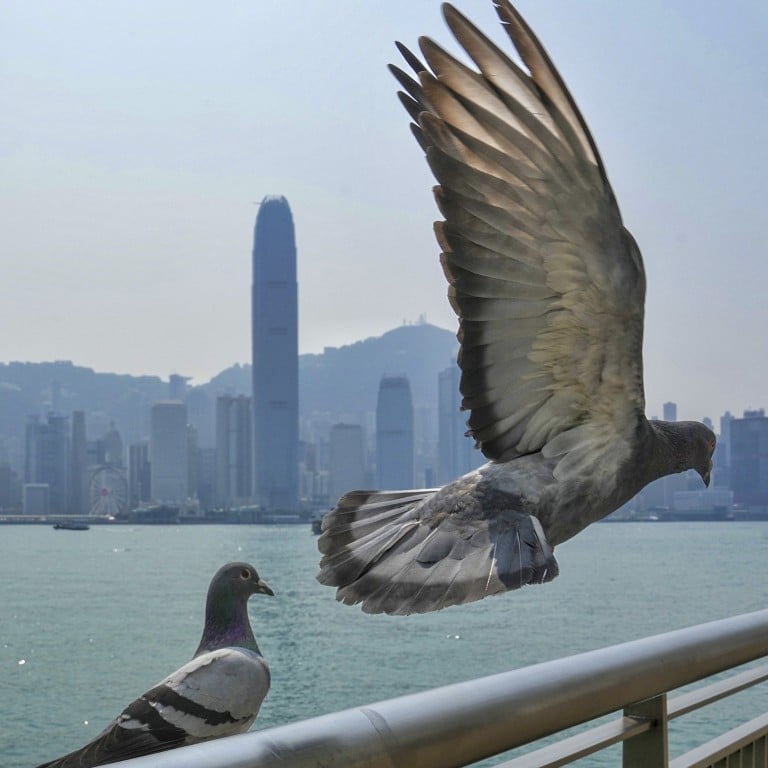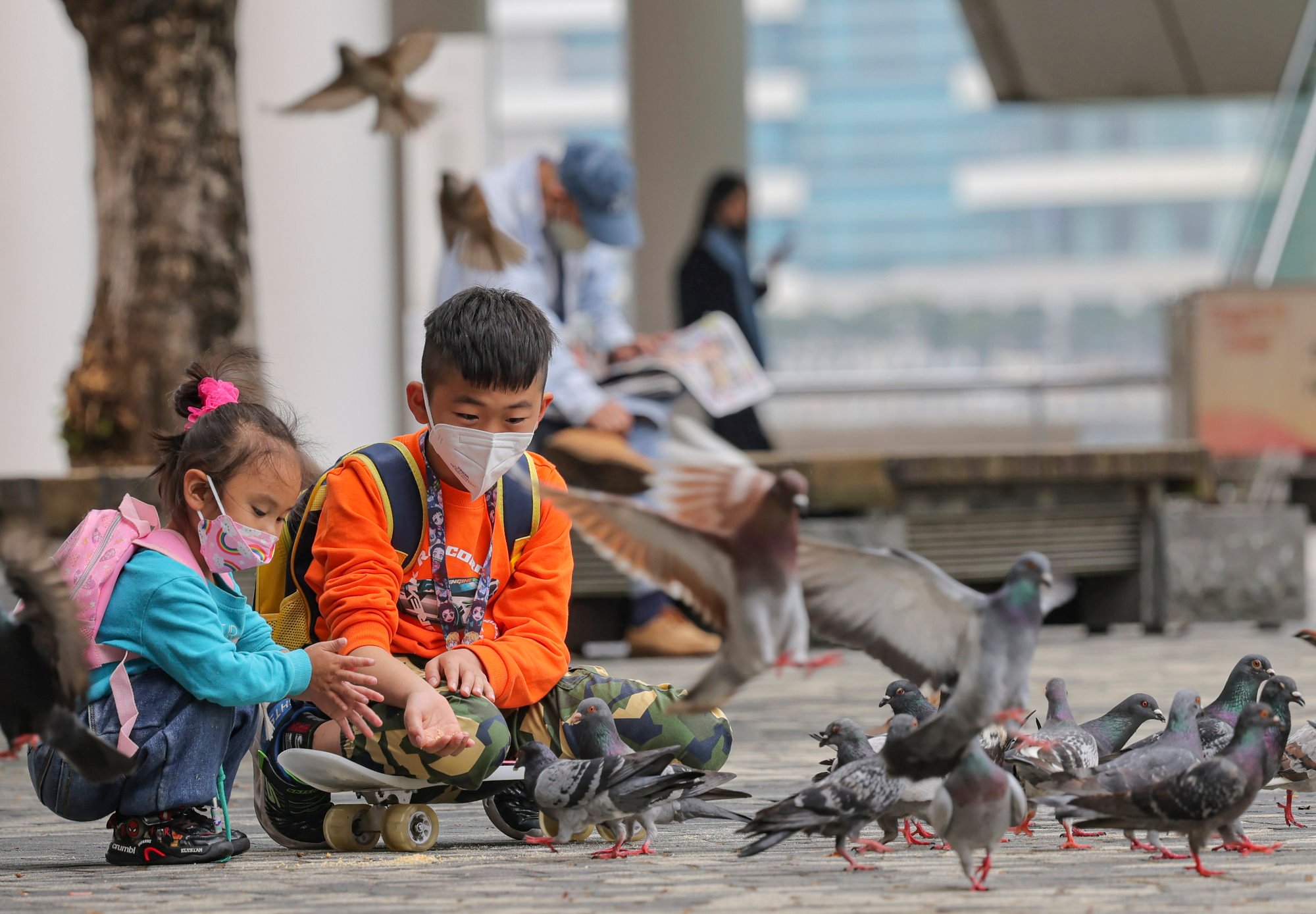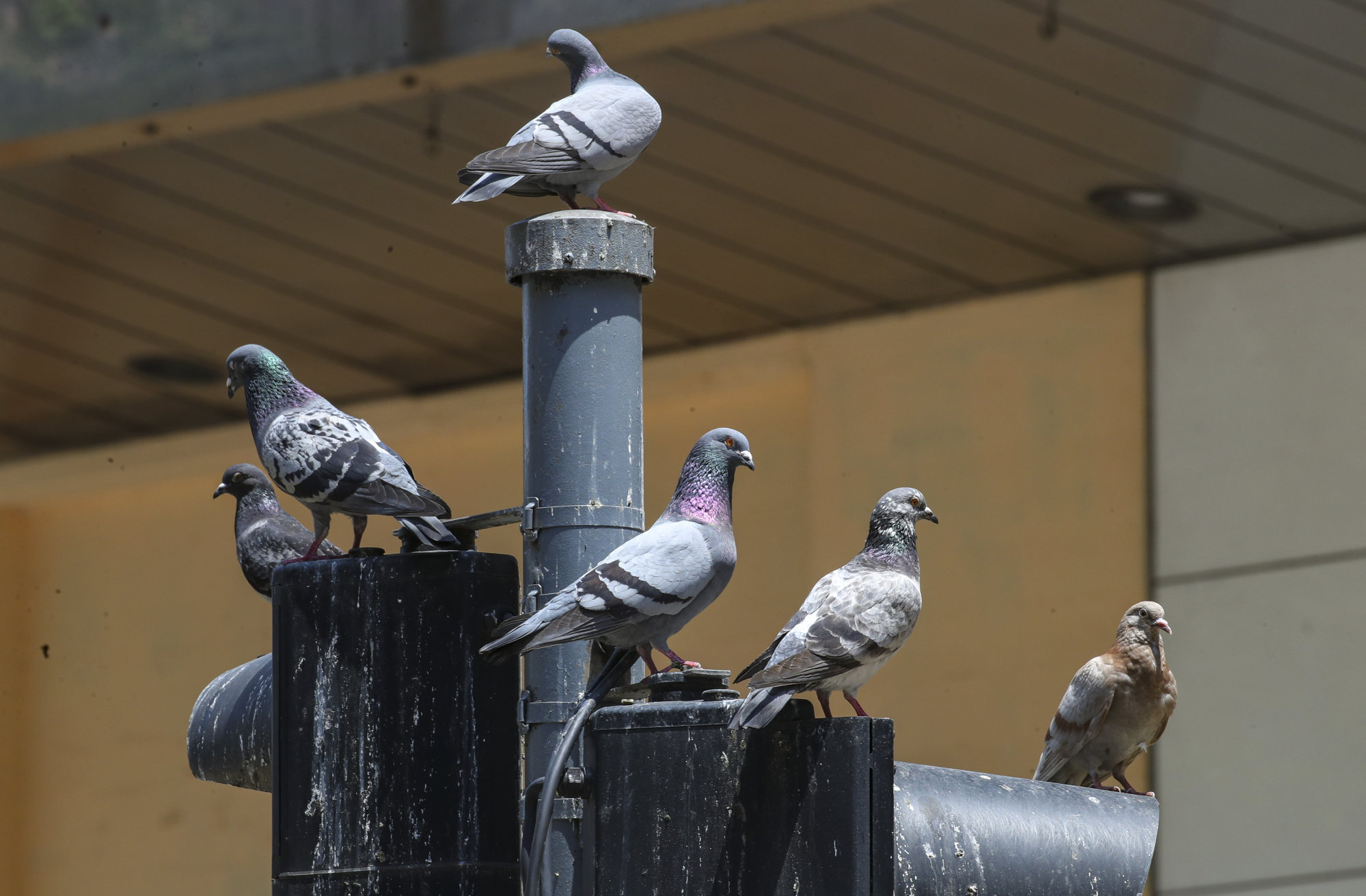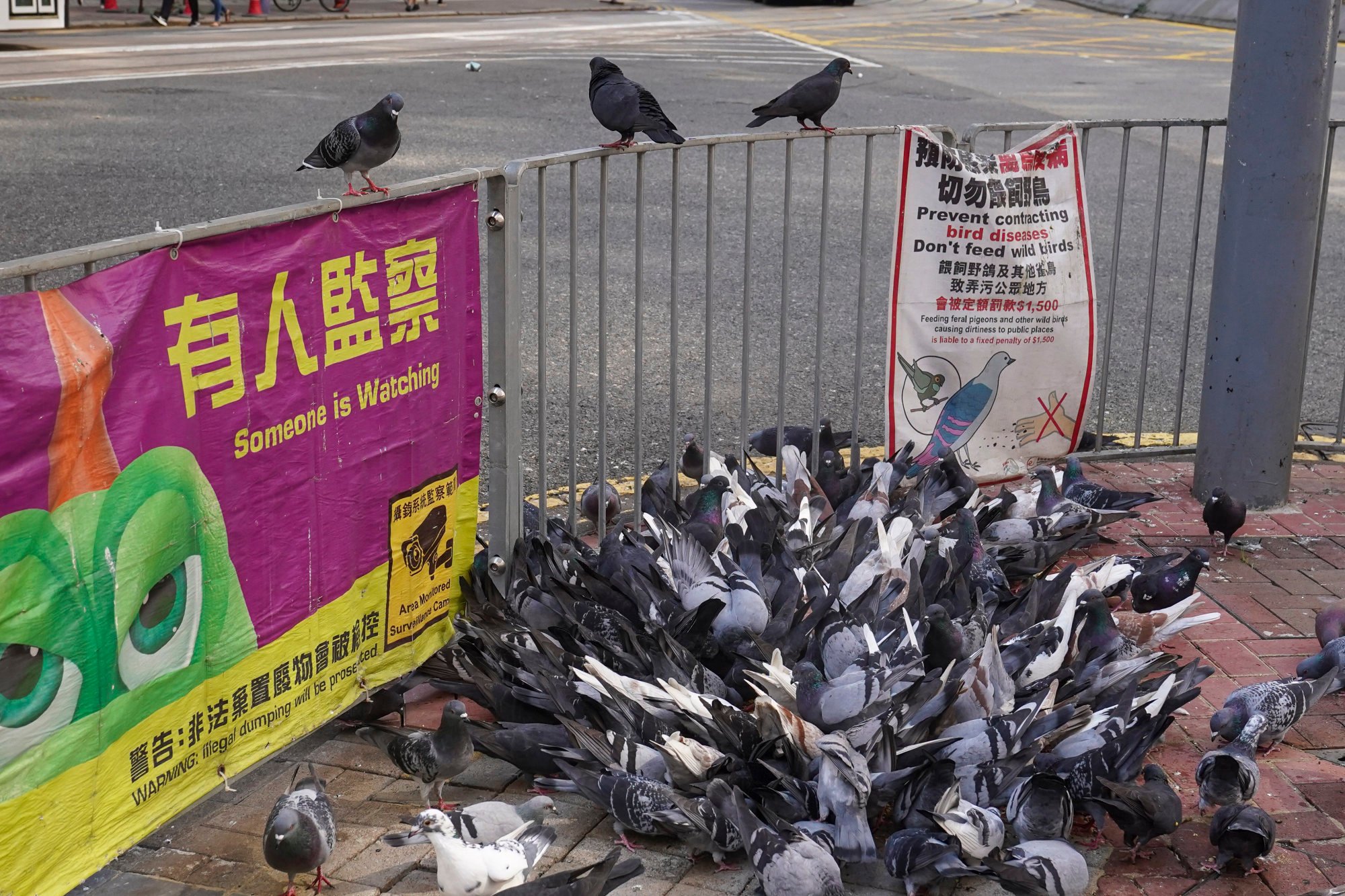
Hong Kong’s proposed ban on pigeon feeding and HK$100,000 fine ruffle feathers
- Critics say new law being presented in Legco is disproportionate to act, point out enforcement issues and effectiveness
- Authorities say bird-feeding is a ‘public health issue’ and will attract other wild animals
Housewife Lynn Ling, 36, walks through Hong Kong’s Victoria Park with her daughter Annmarie, four, every afternoon on their daily commute home from school, during which her daughter will share her snacks, such as rice crackers, with pigeons she comes across.
But the child’s actions may have more serious consequences in future, with the legislature to discuss on Monday significantly raising the penalties for feeding wild animals and feral pigeons.
The proposed maximum punishment is a HK$100,000 (US$12,750) fine, 10 times the present amount, with a year’s imprisonment. Authorities have also suggested introducing a HK$5,000 fixed penalty system to strengthen law enforcement efforts.

“I am pretty shocked. I didn’t know feeding birds was illegal in the first place,” Ling said. “I thought it was just an opportunity for my kid to get in touch with nature.”
Animal rights activists and public policy experts have said the proposed increase has been blown out of proportion, questioning if the punishment would serve its end goal.
In a document submitted to the Legislative Council earlier this week, the Agriculture, Fisheries and Conservation Department said residents feeding birds “constitute a public health issue”.
“Feeding feral pigeons will inevitably attract other wild animals … to eat the food given by the feeders,” a spokesman said, citing species such as spotted doves, tree sparrows, monkeys and wild boars.
Hong Kong considers tougher penalties for anyone caught feeding wild pigeons
Benson Wong Wai-kwok, a retired assistant political science professor at Baptist University specialising in comparative public administration, said such a heavy penalty for a relatively light wrongdoing was a “disproportional” move.
“It doesn’t look so different to dog owners not cleaning up their pet’s excrement while walking them, but the penalties seem drastically different,” he said.
People who do not clean up after their pets in public spaces face a HK$1,500 fine.
“Instead of addressing the problem, this policy may probably yield nothing but seed fear among residents,” Wong warned.

Authorities on December 31 imposed a citywide ban on feeding wild animals to tackle the growth in the population of wild boars in Hong Kong. If the new bill is passed, the prohibition will be expanded to cover street pigeons.
Sightings of wild boars in the city soared from about 300 cases in 2013 to more than 1,100 last year. During the same period, 81 injury cases caused by wild pigs were recorded, of which 75 occurred between 2018 and 2022.
The department also said 56 enforcement cases of residents breaching the feeding ban were recorded in the first quarter this year, up from seven instances over the same period in 2020.
At present, offenders are liable for a maximum fine of HK$10,000 upon conviction.
The department also said the feeding ban on street pigeons would help resolve ecological competition with other animal species because of their outsized population.
Boar war: Hong Kong authorities propose HK$100,000 fine for feeding wild animals
Wan Chai resident Jim So, 67, said feeding wild birds was one of the ways to pass the time after he retired as a salesman some eight years ago.
“I don’t think feeding pigeons could create hygiene problems. We have rubbish collectors cleaning the streets with hosepipes constantly,” he said. “I would feel empty if I can’t feed the birds. My daily life wouldn’t be complete.”
He said the proposed penalty would not deter him, because he believed authorities were calling the public’s bluff.
Other world cities have tried to prevent residents from feeding pigeons. New York in 2007 introduced a US$1,000 fine, while London is discussing a £100 (HK$971) fixed penalty notice or a £1,000 summary offence fine.

Mark Mak Chi-ho, executive chairman of the Non-profit Making Veterinary Services Society in Hong Kong, said he was not convinced wild boars would be attracted to bird feed such as breadcrumbs.
But he said feeding the birds would bring them behavioural and dietary problems.
“Pigeons are omnivores,” he said, adding that the food residents gave to the birds was different from what they fed on in the wild, thus likely leading to body deformation and changes in diet.
“Hongkongers have lower tolerance for birds than residents of other places because of the city’s high living density,” he added.
Hong Kong man arrested on suspicion of breaking wings of wild pigeon
Vera Yuen Wing-han, a policy studies lecturer at the University of Hong Kong, said that to create sufficient deterrence, the penalty and probability of offenders being arrested had to be coherent.
“If no one will be fined, arrested or charged, it will be futile no matter how heavy the punishment looks,” she said.
The Agriculture, Fisheries and Conservation Department said it would take corresponding law enforcement actions throughout the city and redeploy internal resources to provide training to frontline officers.
